
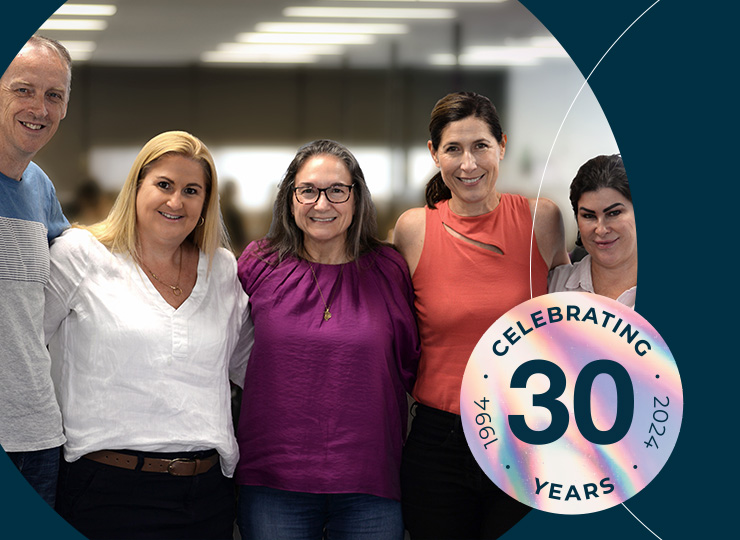
The journey of the Travel Consultant
The role of a Travel Consultant in the 1990s was a far cry from what it is today. It was another world, marked by a lack of digital tools that have since revolutionized the industry. Picture this: the hum of fax machines, stacks of paper tickets, a ticket printer, and a symphony of ringing phones with customers ready to make a booking.
Speaking with some of Corporate Travel Management’s (CTM) most seasoned Travel Consultant from across the globe has been an enlightening journey; individuals who have all occupied the Travel Consultant seat in their career, with some still diligently serving our valued customers in this role today. Together, they have collectively reminisced and reflected on the remarkable transformation of the role of a Travel Consultant over the past three decades as CTM marks its 30th anniversary.
Julie Archer, Corporate Travel Consultant – AU/NZ shares, “I can recall my first day at the very first CTM office in Brisbane. The company was so small, and it felt like an intimate family. I could walk into our Managing Director’s office without an appointment, which truly represents our close-knit culture and nothing has changed. Many of the original staff members are still with CTM today. Watching the company grow feels like witnessing a family have thousands of children,” she laughs. “It’s a darn good company,” Archer claims, and a key reason why she remains committed to CTM, her customers and her role as a Corporate Travel Consultant 21 years later.
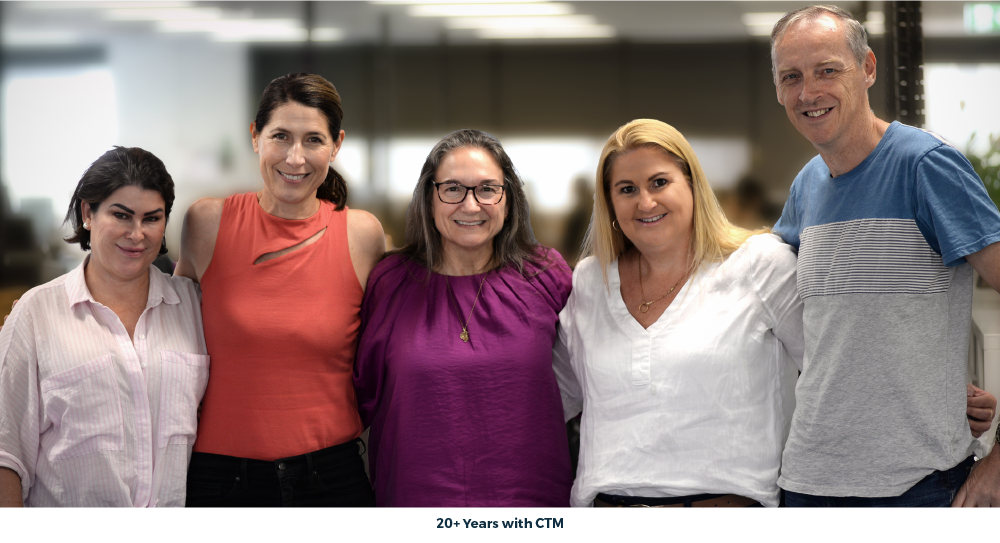
The manual marvels of the yesteryear
Travel Consultants of the ‘90s and even into the very early 2000s were true travel marvels of their time. They handwrote tickets, meticulously ensuring each one was correct. The ticketing process wasn’t just a task; it was a manual art form of pens and ticketing paper, something that would sound foreign to the digitally inclined Generation Z and Alpha. Eduardo Rios, Corporate Travel Advisor – North America, fondly recalls the days of handwritten airline tickets and processing exchanges, where the completion of the revised date was signified with a sticker on the ticket.
Gemma Pascoe, Head of Operations – Queensland remembers, “In those days, there was no Google or online travel tools. Customers would either visit the CTM office in person while we booked their upcoming trips, or they would fax their booking requests.” The team would then call the airline or travel supplier to process their booking. John Richmond, Head of Client Services Crown & Corporate – UK further highlights, “Travel programs and policies weren’t as strictly enforced by companies during those times. In fact, some customers didn’t even have one, which is quite different from today’s corporate travel standards.”
Before the introduction of the Internet, finding suitable accommodation involved sifting through directories. Dawn Eversfield, Faredesk Analyst – AU/NZ, mentions the familiar office call of “Who’s got the Dawson’s guide?” because, without it, there was no other way to determine available accommodations in a particular location or their contact information. Dan Rose, Corporate Travel Consultant – AU/NZ adds, “I remember thinking to myself, one day we will be able to look up this information on a computer.”
Archer recollects the days of filling out airfare construction lines on paper tickets. “Each airline had its own binder, and it was imperative to master the craft of constructing a customer’s ticket. You also had to use the corresponding metal airline plate to validate it, which was also known as “plating carrier,” she says. Rose humorously adds, “It was almost a given that you would go home with red ink all over your white shirt from the ticket carbon.” The time it took to ticket a booking back then was easily quadruple what it takes today noted Archer, “These days it is just a couple of keystrokes, and you’re done.” Tia Pham, Travel Advisor – North America adds, “I remember manually handwriting 120 tickets for a group which took me a whole day. It was a time-consuming process back then.”

Personalising the customer experience didn’t rely on intricate algorithms; instead, Richmond goes on to explain that the office junior would collect all the airline tickets in their paper wallets and hand-deliver them to customers within walking distance, while others would receive theirs by mail. Tim Barclay, Corporate Travel Consultant – AU/NZ, remembers a colleague who used to pick up all the customer passports and head off to the consulate on foot for visa processing.
Personalisation also hinged on the paper-based filing systems and the remarkable capacity of our Travel Consultants to retain a wealth of knowledge about their customers. This skill was the cornerstone of CTM’s customer value proposition, emphasising our dedication to delivering personalised service—a commitment we continue to uphold today.
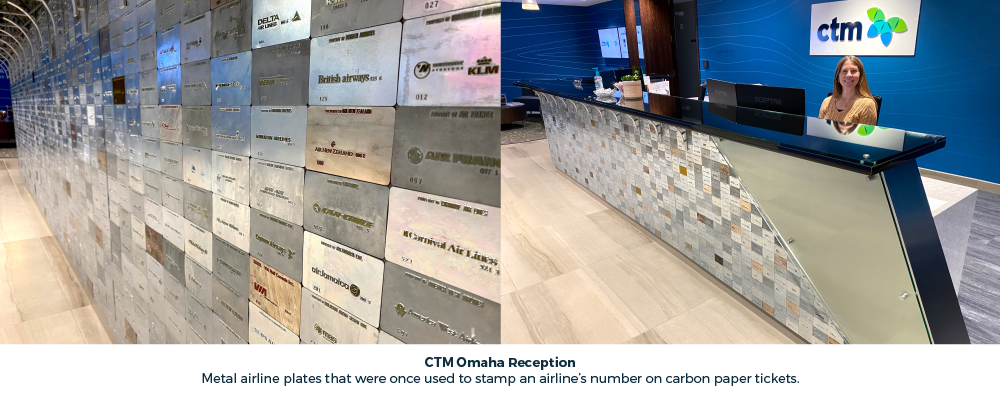
Embracing change and the evolution of a Travel Consultant
At its essence, the core mission of the corporate Travel Consultant remains unchanged: to facilitate safe and efficient travel from point A to point B, enabling business travellers to carry out their crucial corporate responsibilities. However, how they deliver their services and expertise has evolved significantly.
The World Wide Web: Introducing the Internet
The internet burst onto the scene in the mid-’90s, shaking the industry’s foundations. It was not long after we witnessed the evolution from phone calls to online platforms, allowing Travel Advisors to offer real-time booking options and compare fares with ease.
“The access to products was so easy; you didn’t have to pick up the phone to speak to an airline to book flights anymore. The ability to email people was revolutionary and provided better access to the world. We became more easily connected,” Pascoe said.

The internet was a game-changer on multiple fronts. It brought convenience, efficiency, and accessibility to a whole new level. For Travel Consultants, the advantages were many; online platforms made booking flights, accommodations, and other travel services a quick and hassle-free process.
“Travel Consultants gained access to real-time data, including flight availability, pricing, and itinerary details. This not only made their work more efficient but also allowed them to provide customers with up-to-the-minute information,” explains Eric Ko, Deputy Head of Operations, Hong Kong. With the ability to compare fares and services across different providers, Travel Consultants could offer customers more informed choices, ensuring they received the best value for their travel budget.
The internet brought the world closer, enabling Travel Consultants to connect with customers and travel suppliers worldwide. It also helped where there were previously language barriers, as all information could be accessed online. It broke down geographical barriers and facilitated better communication, resulting in enhanced service delivery.
As for the advantages for corporate travel customers, they too reaped the benefits of this digital revolution. Customers could now self-book their corporate travel within a corporate online booking tool in just a few clicks, eliminating the need for phone calls and paperwork. With the ability to compare options easily, customers had a wider range of choices at their fingertips, ensuring their travel plans aligned with their preferences, corporate policy and budgets.
Real-time bookings meant that customers could secure their travel plans with minimal delay, ideal for those with tight schedules. The range of options was all made possible by the seamless connectivity of the internet.

From ticket printers to e-tickets
The early 2000s were a pivotal era of transformation. Airline by airline, the transition to e-tickets became a reality, with the International Air Transport Association (IATA) setting 2007 as the initial deadline for airlines to embrace 100% electronic ticketing. These digital wonders were far more than a mere change; they were a revolution in travel.
“E-tickets were, without a doubt, the most significant change in our industry. They not only empowered Travel Consultants to issue tickets worldwide but also did so in a matter of seconds,” shares Pascoe.

Customers embarked on this new journey as well, adapting to technological changes and becoming accustomed to the idea of travelling without a physical paper ticket. Barclay recalls that “initially, we would still attach the details of the e-ticket to the customer’s itinerary, providing a sense of ‘ticket’ security. It was a substantial adjustment for everyone to wrap their minds around not needing a physical one.” This transition was a shared experience, felt by both customers and Travel Consultants.
Introduction of after-hours support
Archer recalls a time when all international Travel Consultants used to be on a roster where they would be provided with a laptop and satellite phone and would be on call for a week at a time; this was before the dedicated after-hours team commenced.
As the CTM Group expanded, so did their customer service with the introduction of ‘After Hours’ teams in 2005/2006 which allowed for the management of last-minute bookings, changes cancellations or any other ‘emergency’ issues.
The CTM after-hours support team has grown across 4 continents to service customers with last-minute requests and emergencies. No matter where people travel in the world, there’s a friendly CTM Travel Consultant available to service their needs. A testament to the model’s value today, CTM’s 2023 Global Customer Survey results found that 96.33% of CTM’s customers still prefer to deal with a human during an emergency.
Nurturing future travel experts
In response to the rapid resurgence of travel activity in 2022, CTM proudly introduced the CTM Academy, underscoring its unwavering commitment to cultivating the Travel Consultants of tomorrow. The Academy’s primary mission is to provide aspiring Travel Consultants with a comprehensive onboarding and training program, empowering them with the knowledge and skills necessary to navigate the ever-evolving corporate travel landscape.
The CTM Academy has already yielded tangible benefits for customers. The inaugural cohorts of Academy graduates seamlessly collaborate with experienced consultants, bolstering their capabilities and assisting customers in managing their expanding business travel needs.
Pascoe says, “It has opened the doors for individuals to join the CTM family, even without prior travel experience. The calibre of graduates we continue to welcome is truly exceptional. They bring a fresh perspective, introduce innovative concepts, and radiate enthusiasm and excitement, all of which translate into remarkable advantages for our customers.” This initiative not only enriches the talent pool but also guarantees a steady infusion of fresh ideas and passion, ensuring that CTM remains at the forefront of delivering exceptional service to its customers.
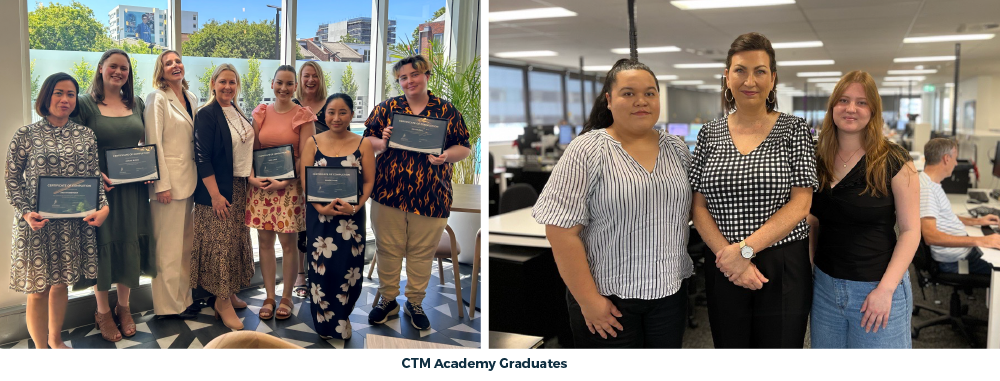
The modern corporate travel experience
Let’s fast-forward to today, where smartphones and mobile apps have rewritten the rules of travel. Travel Consultants aren’t just a phone call away; they’re in the palm of your hand. Technology, complemented by a sprinkle of AI, has transformed our Travel Consultants into personalisation wizards, crafting every detail of your travel plans to meet your personal preferences and needs.
But how exactly have technology and online booking tools (OBTs) elevated a Travel Consultant’s ability to serve customers and enhance the customer experience? “Technology has undeniably made us even more productive and efficient in our roles, freeing us from the constraints of manual paper-based processes of the past,” remarks Pham.

The emergence of AI-powered chatbots and virtual assistants, including CTM’s introduction of Scout chatbot in FY24, has made communication effortless, with automation now handling low-value routine tasks to free up a consultant’s time to service their customers’ more complex travel needs.
Amidst this dynamic technological transformation, the corporate travel industry has experienced a profound evolution. Each innovation has added a new layer to the industry’s functionality. However, the enduring essence of this industry lies in the skills, expertise, dedication, and professionalism exhibited by Travel Consultants. They are the heartbeat of CTM’s commitment to delivering exceptional service and value to customers in a world increasingly shaped by technology.
Hats off to all Travel Consultants
The role of a Travel Consultant has witnessed a remarkable evolution, progressing from the days of pens and ticket paper to the era of automation and algorithms. The dedication and unwavering passion of these Travel Consultants persistently shape and redefine the journey for every business traveller, ensuring that every trip is not just a seamless itinerary but also a trip that provides real value and business outcomes for their company. Their enduring commitment and expertise stand as a testament to the lasting value they bring to the world of corporate travel.
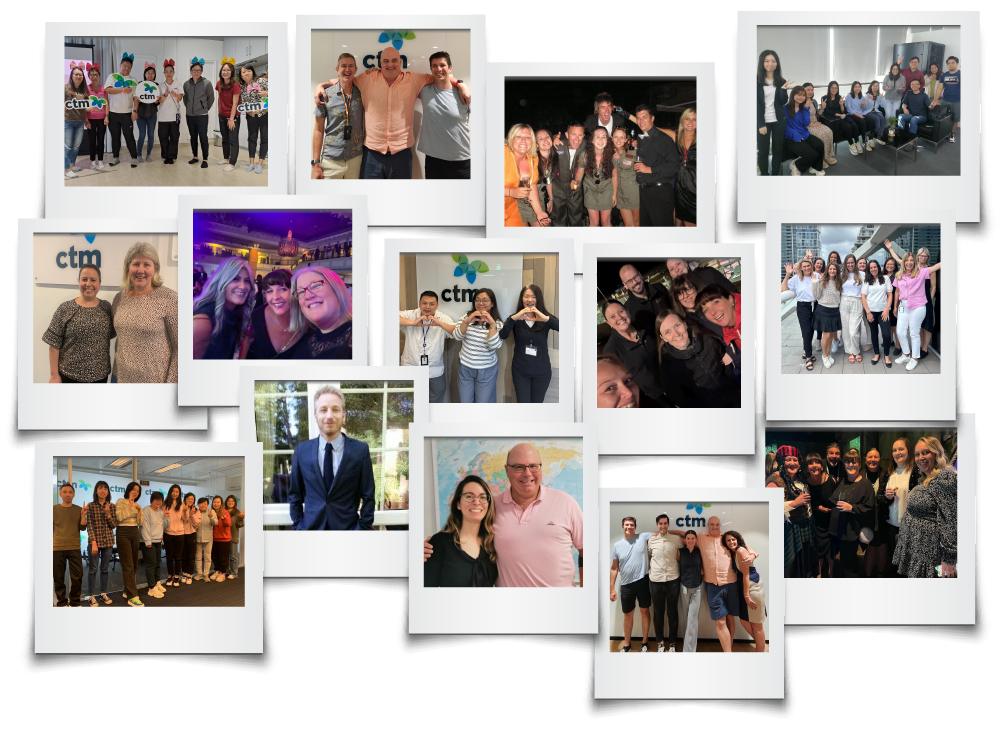
Looking for a TMC that’s second to none in experience and expertise?
Get in touch with CTM now and elevate your travel experience.




